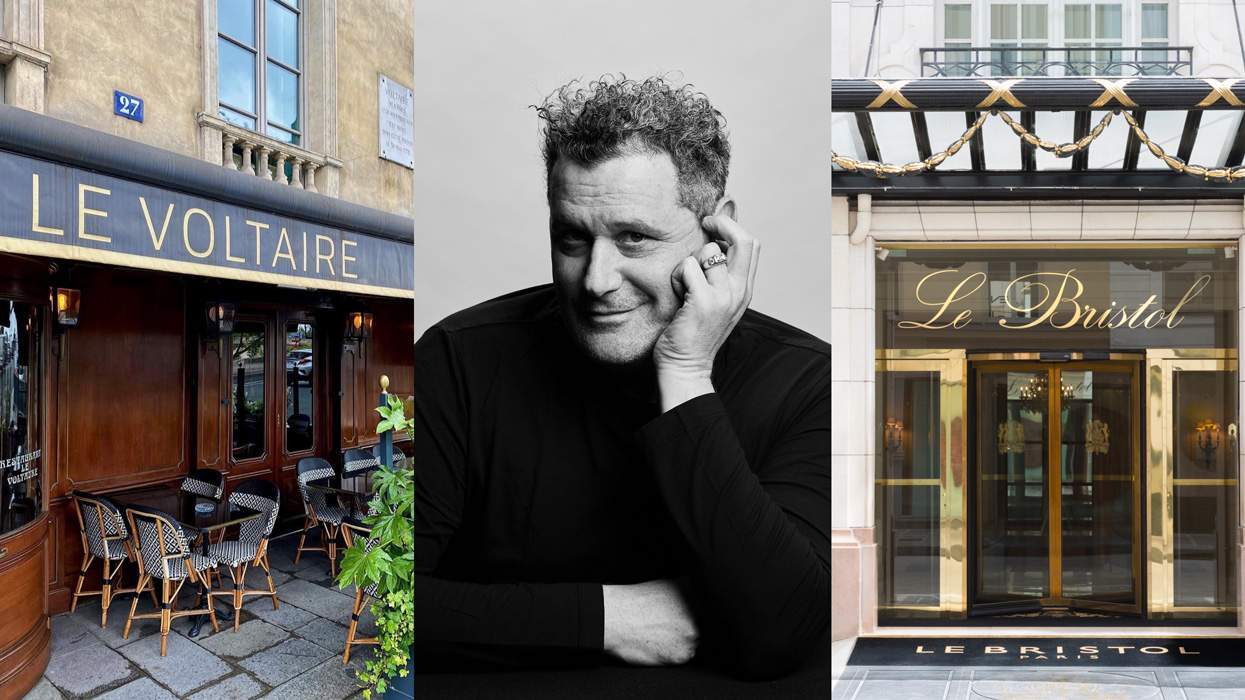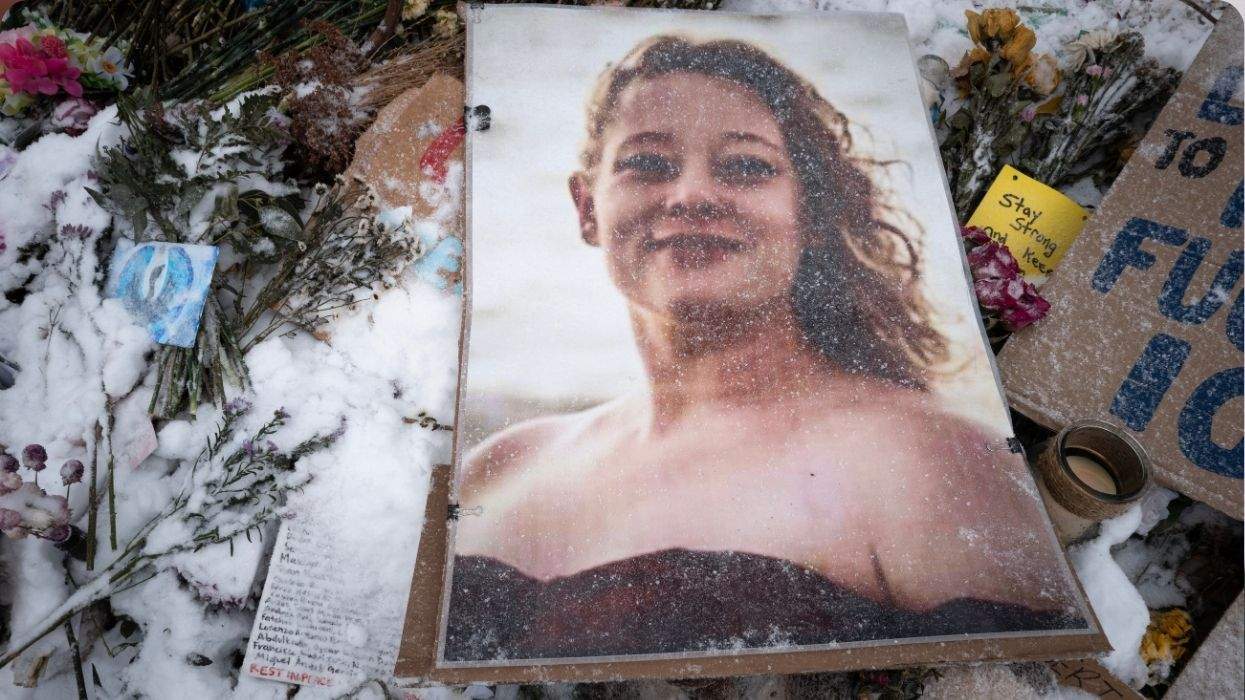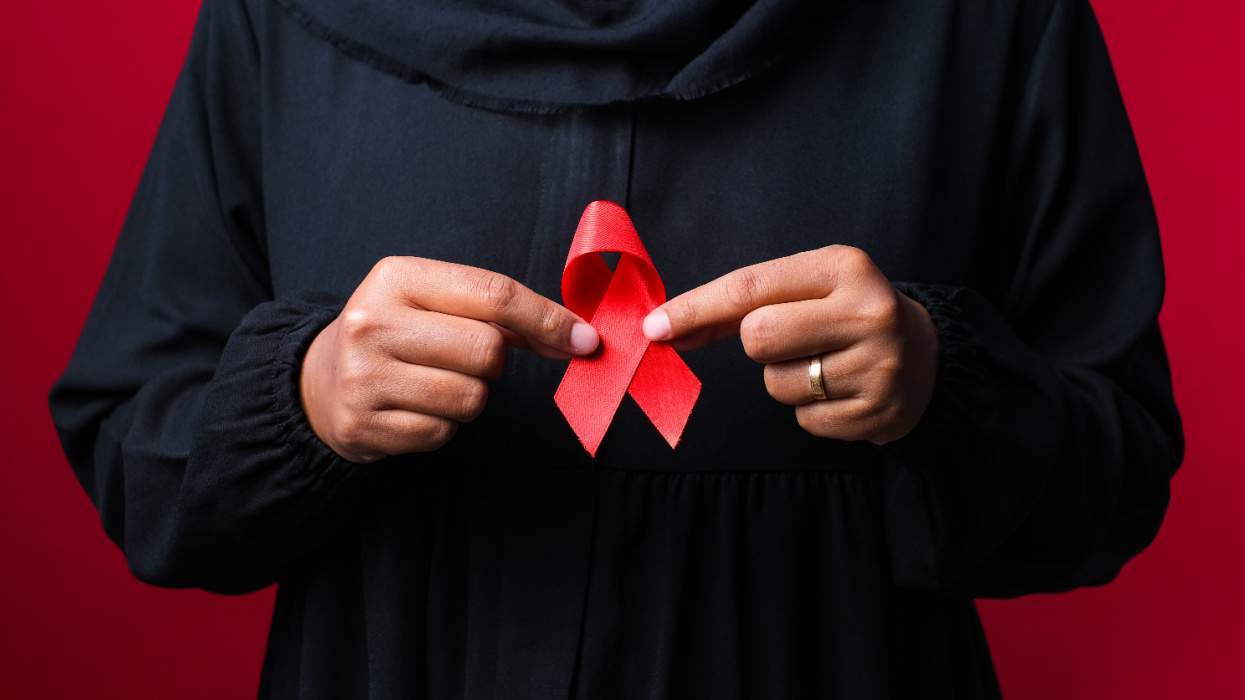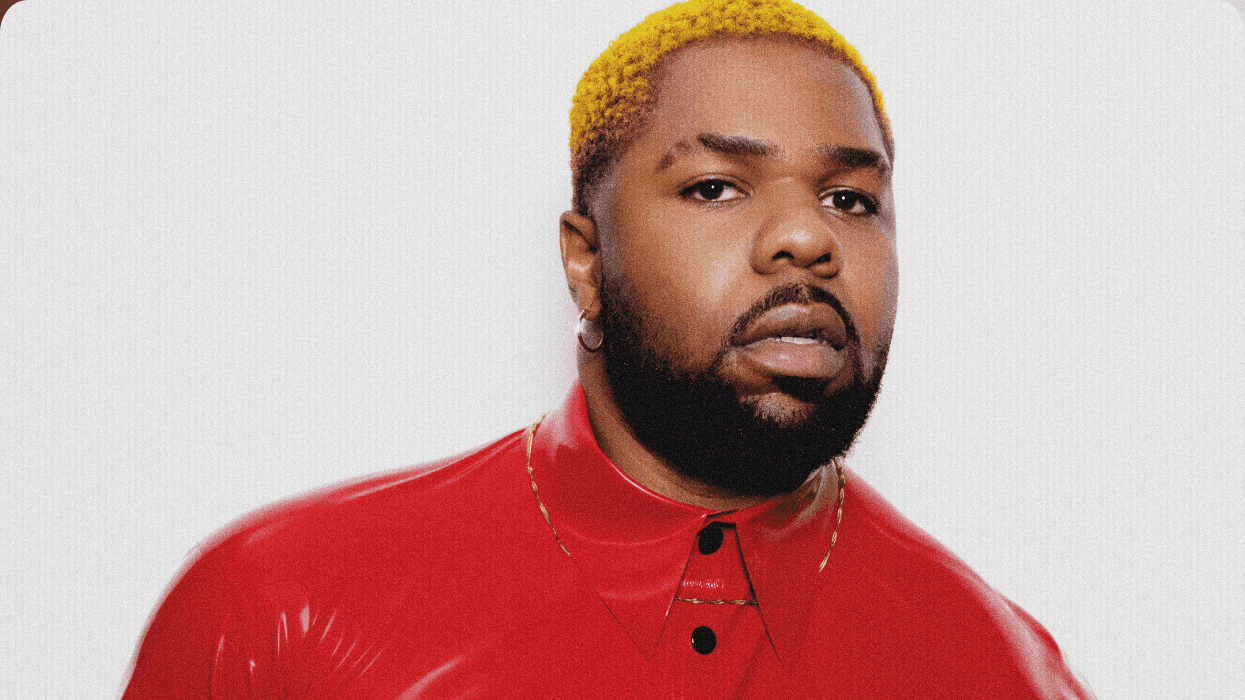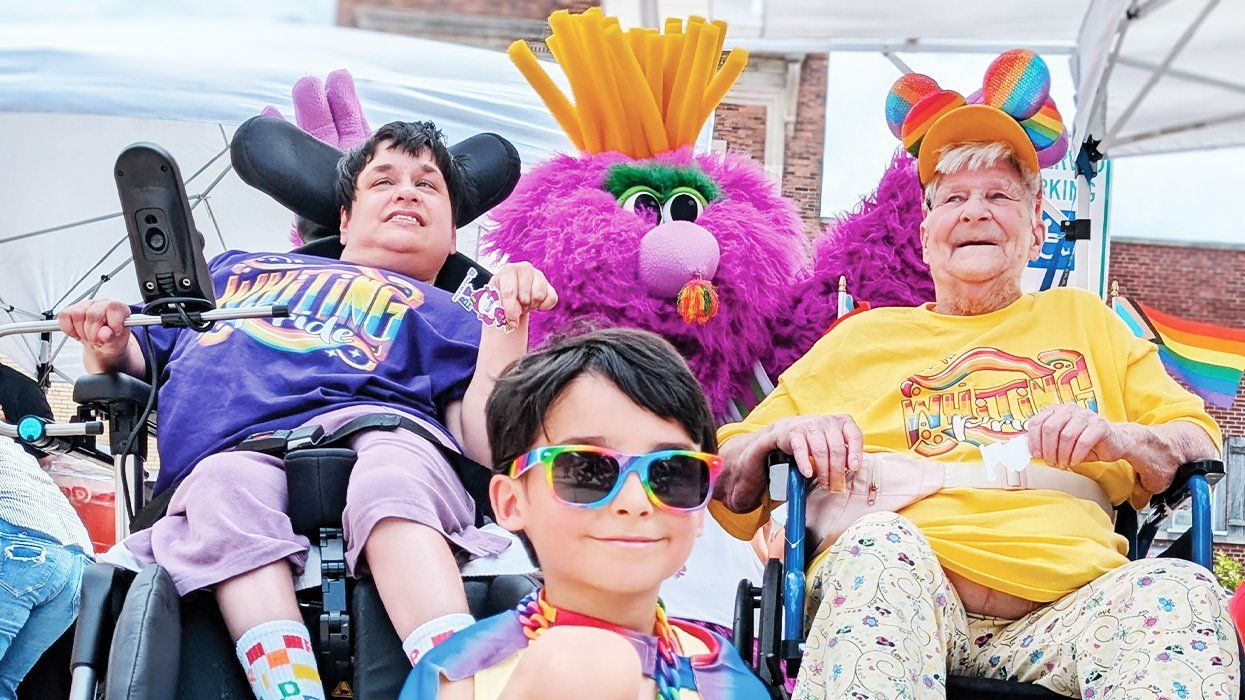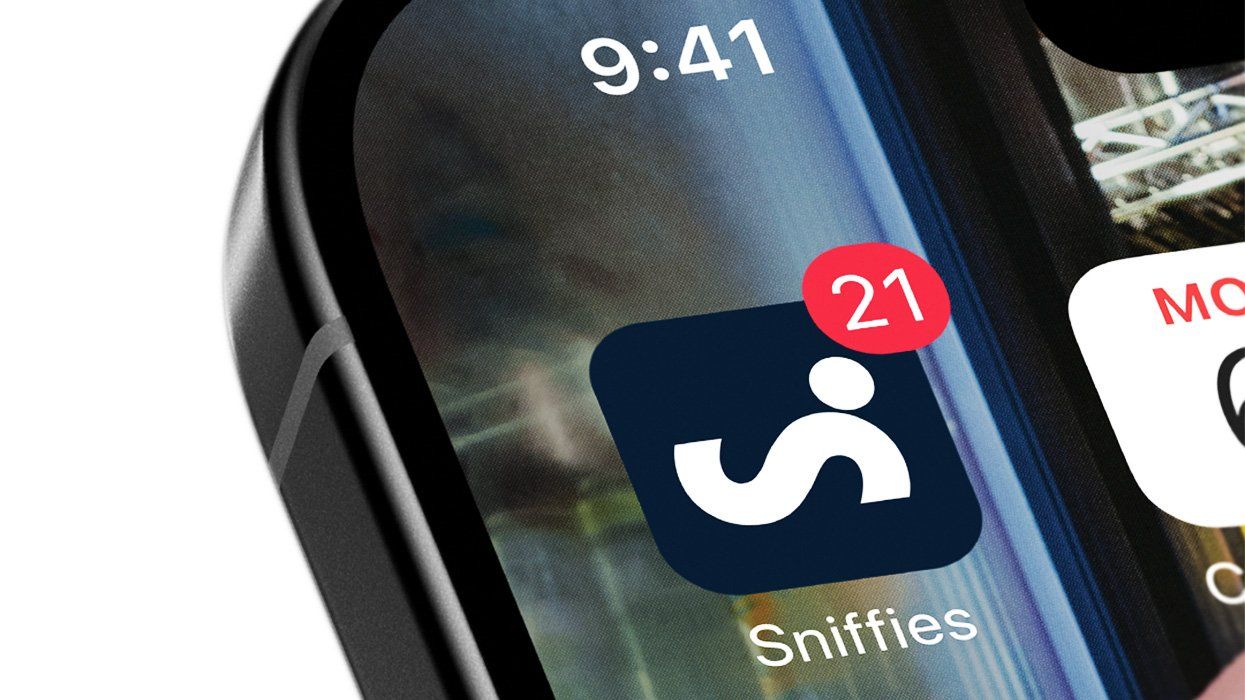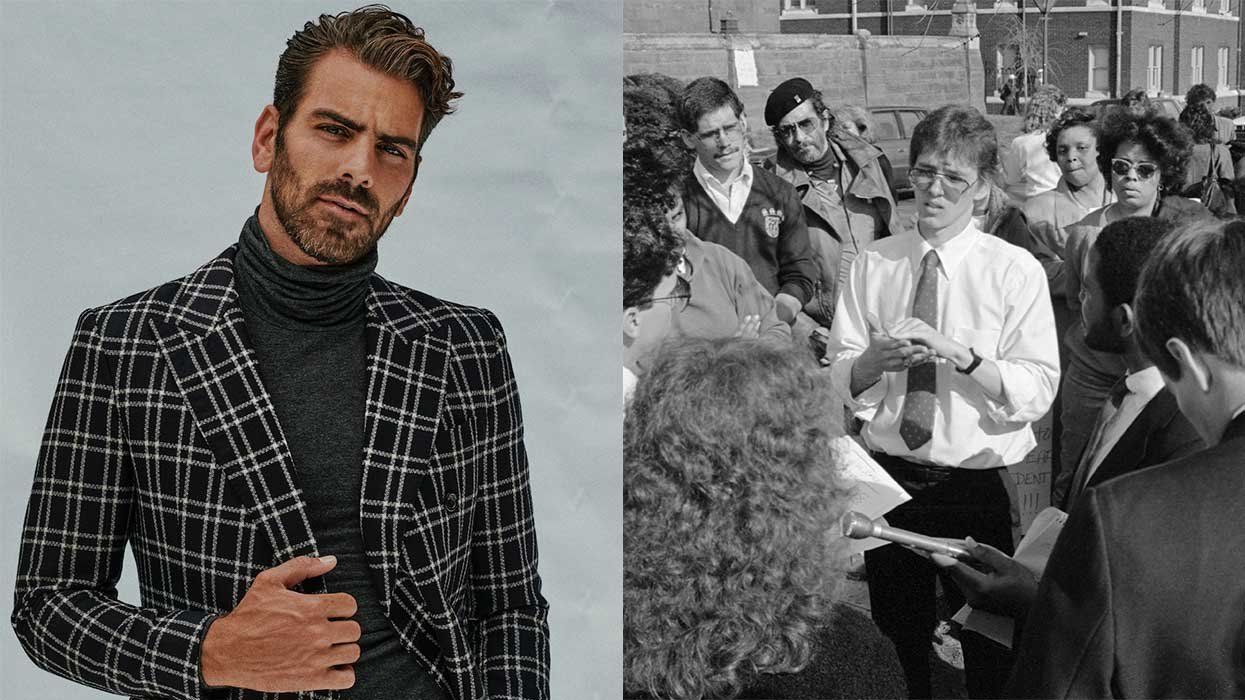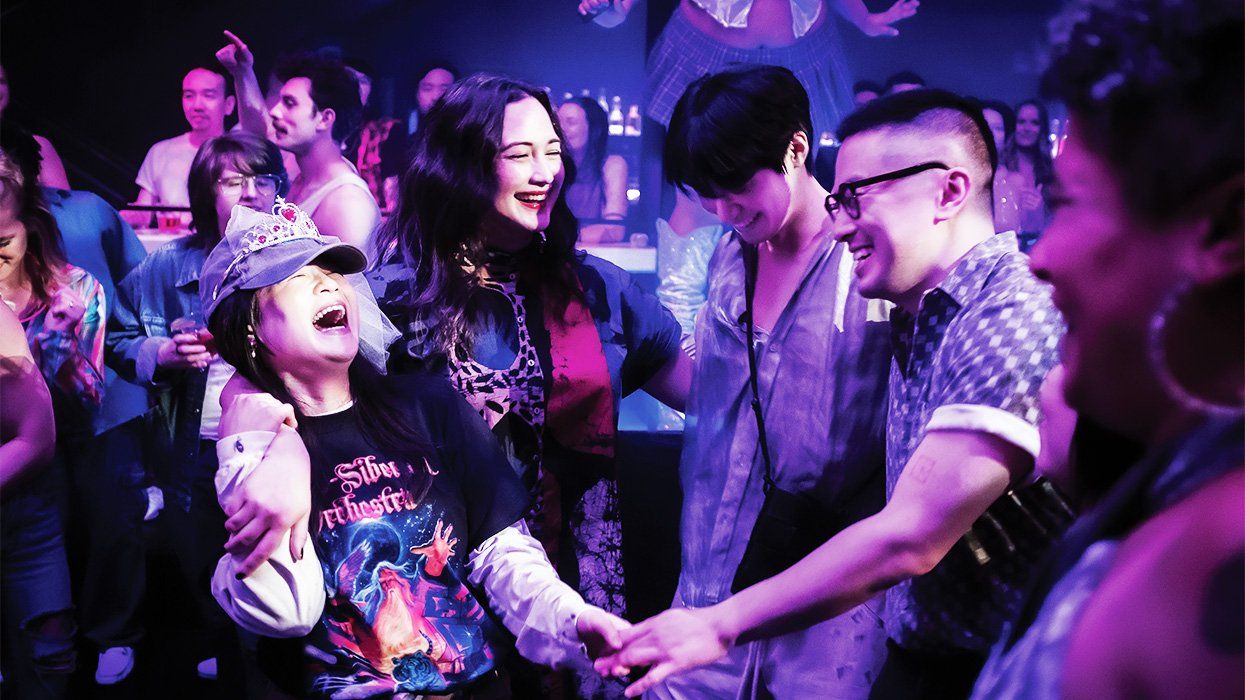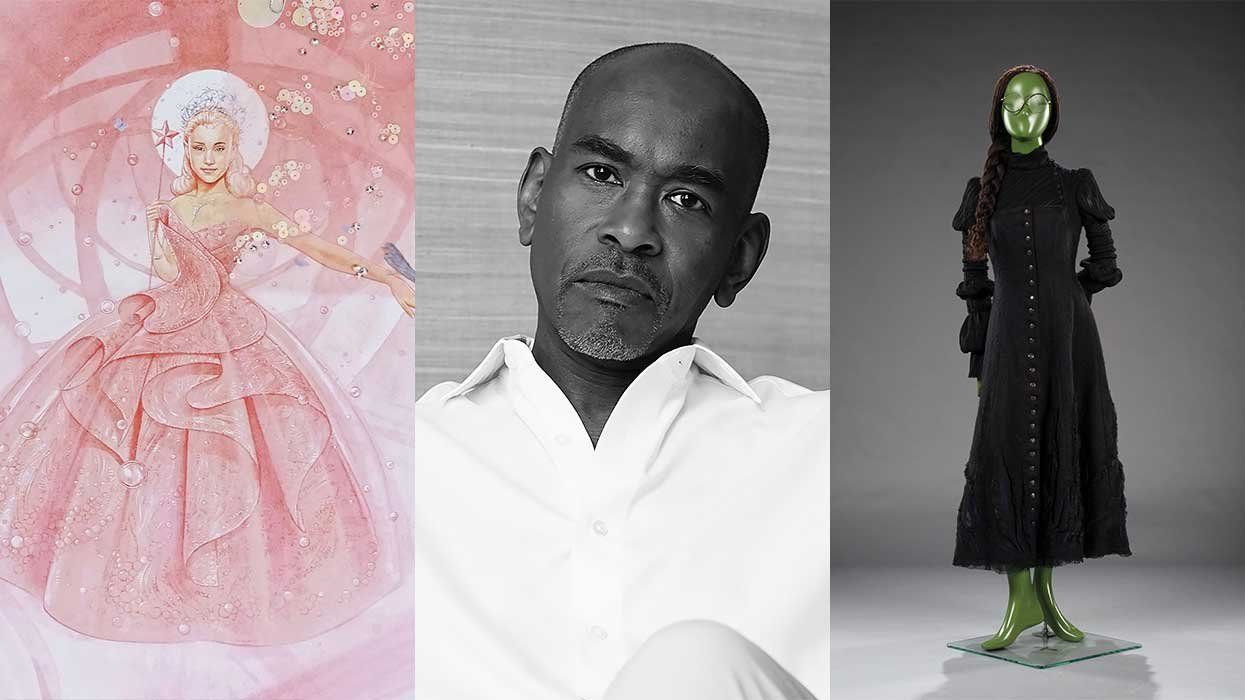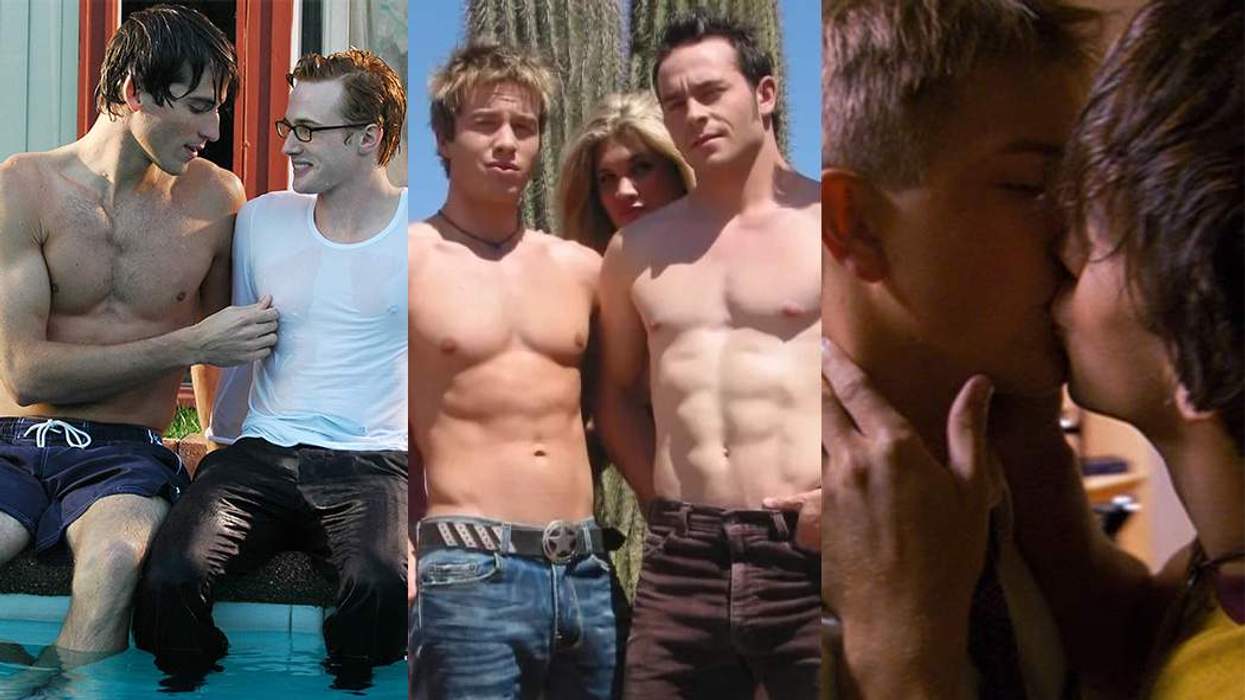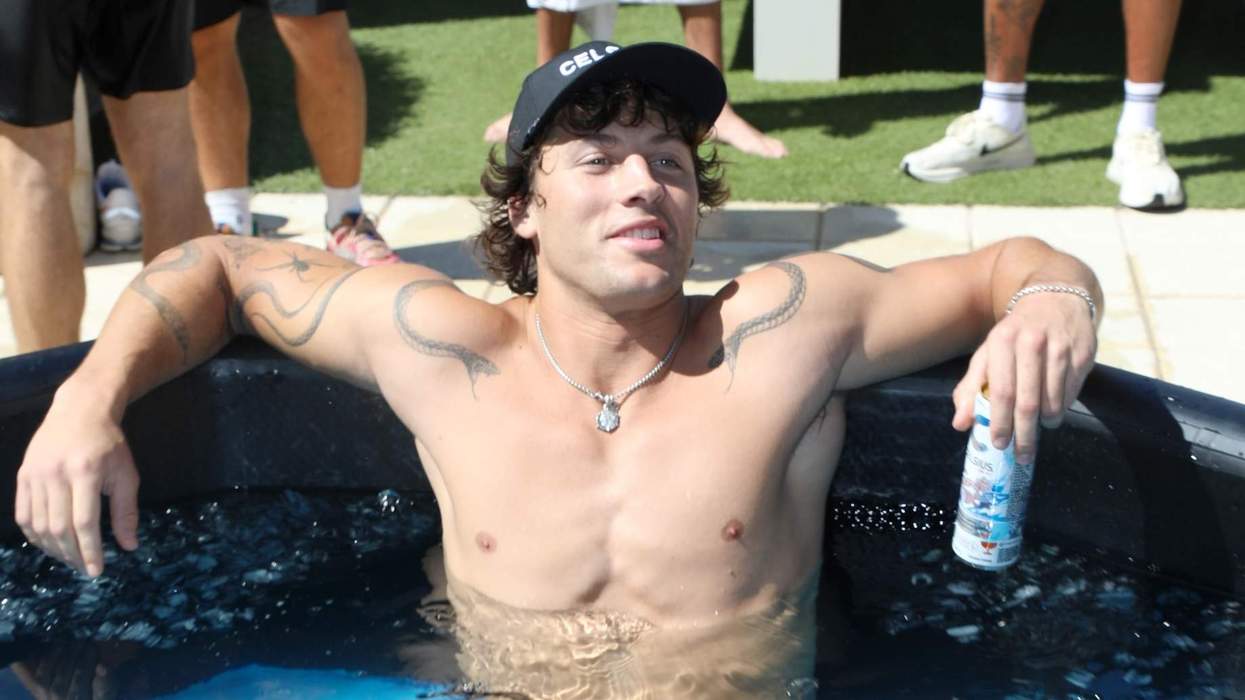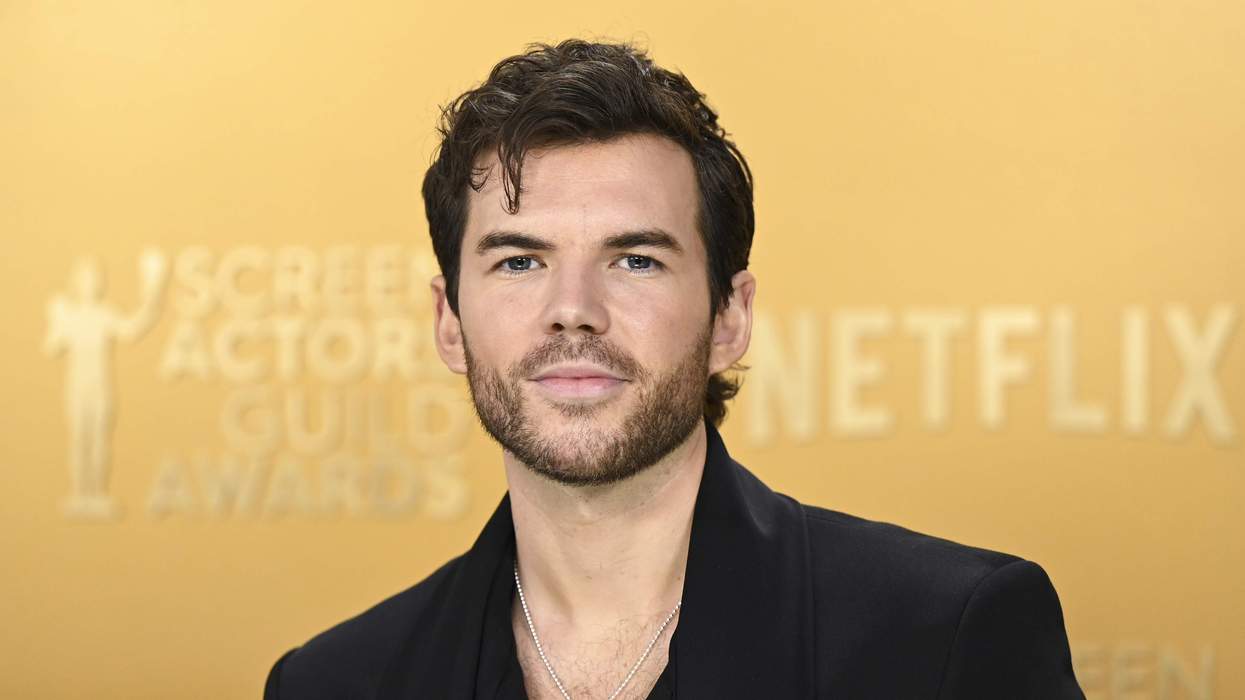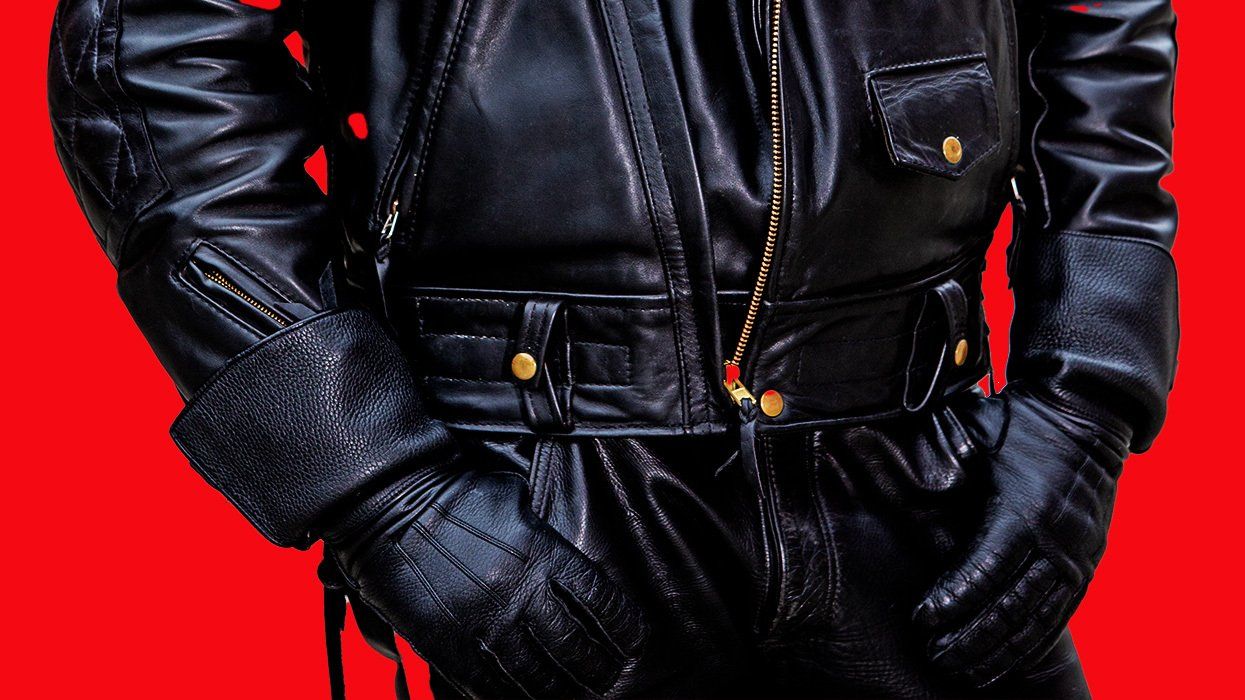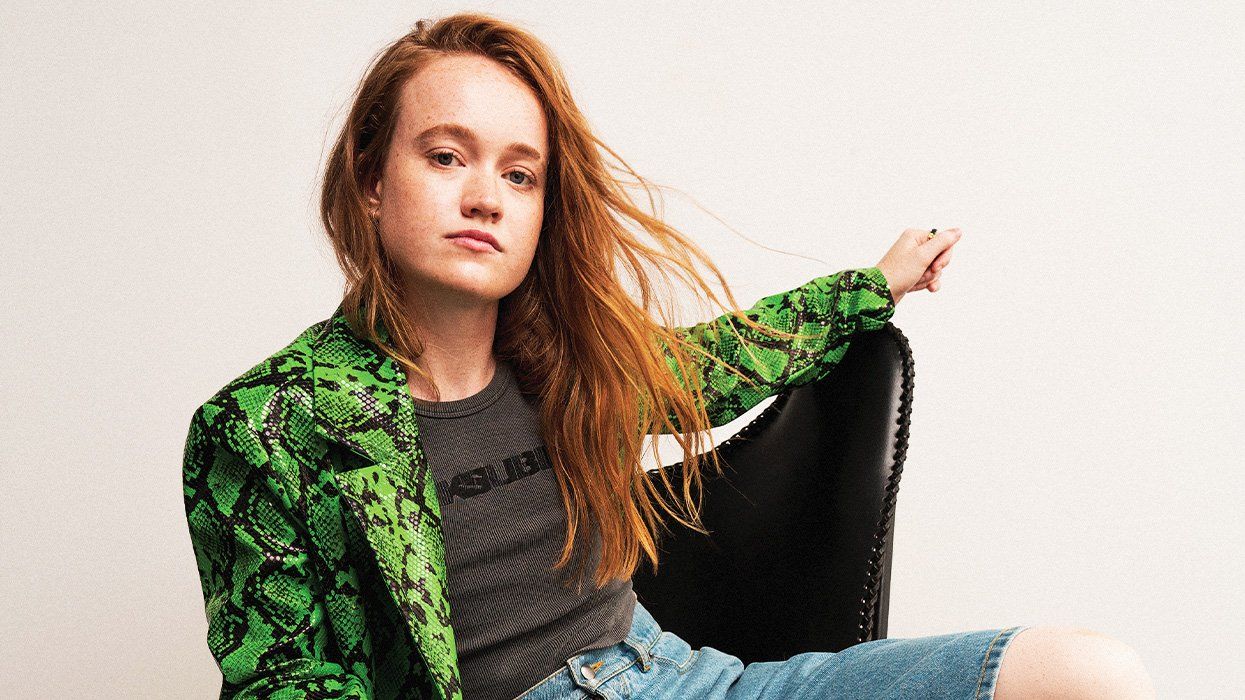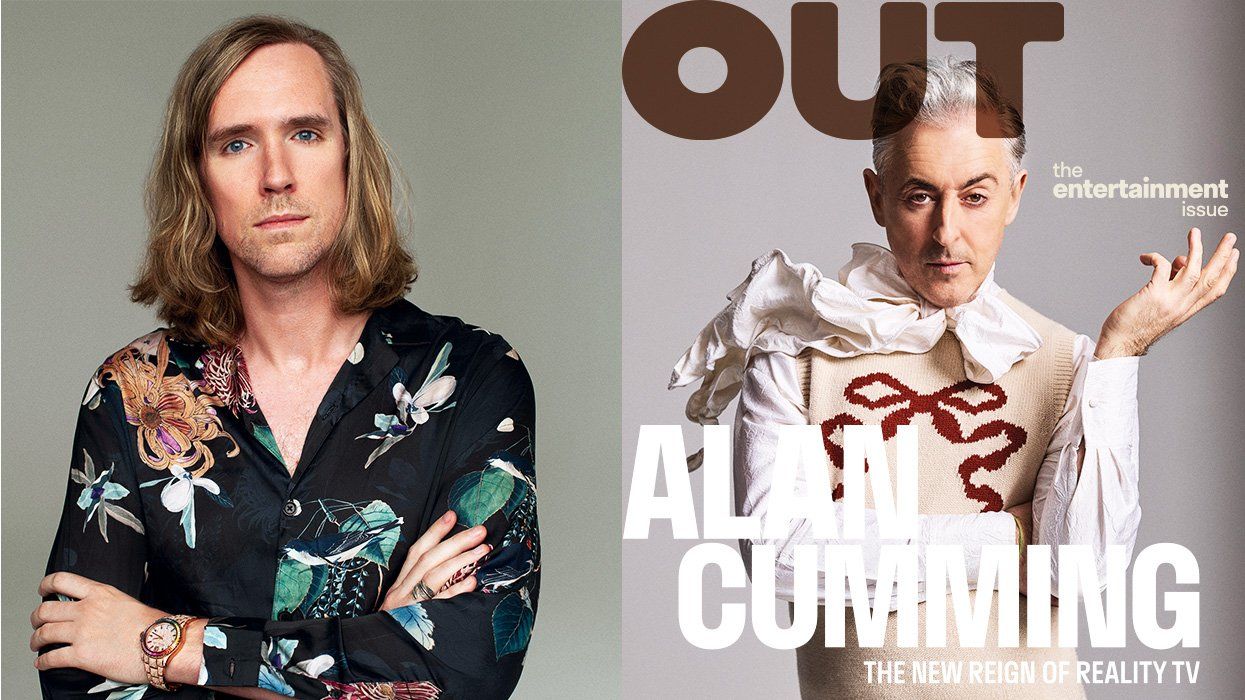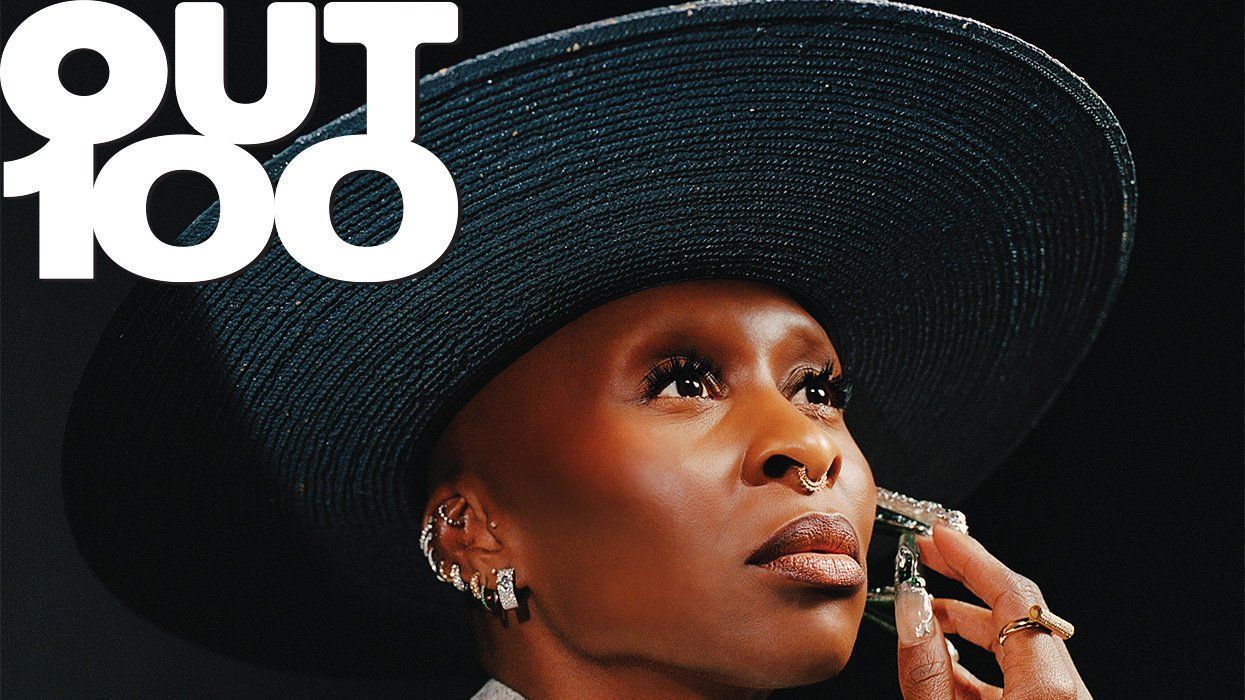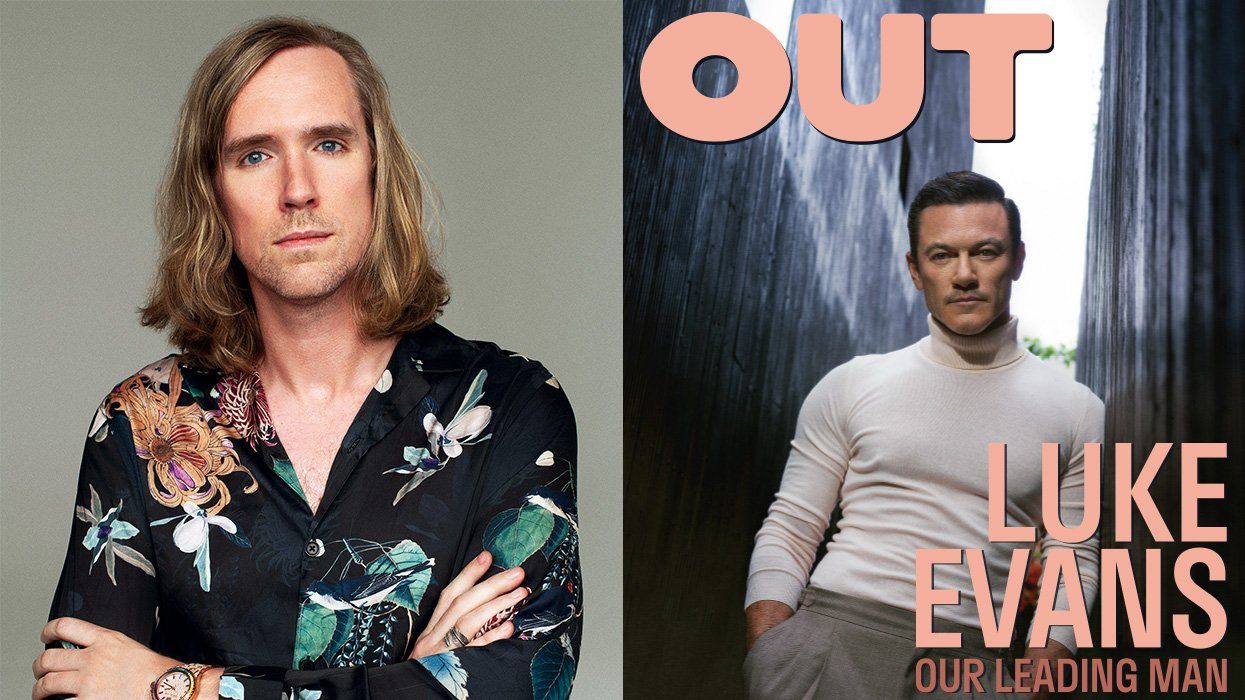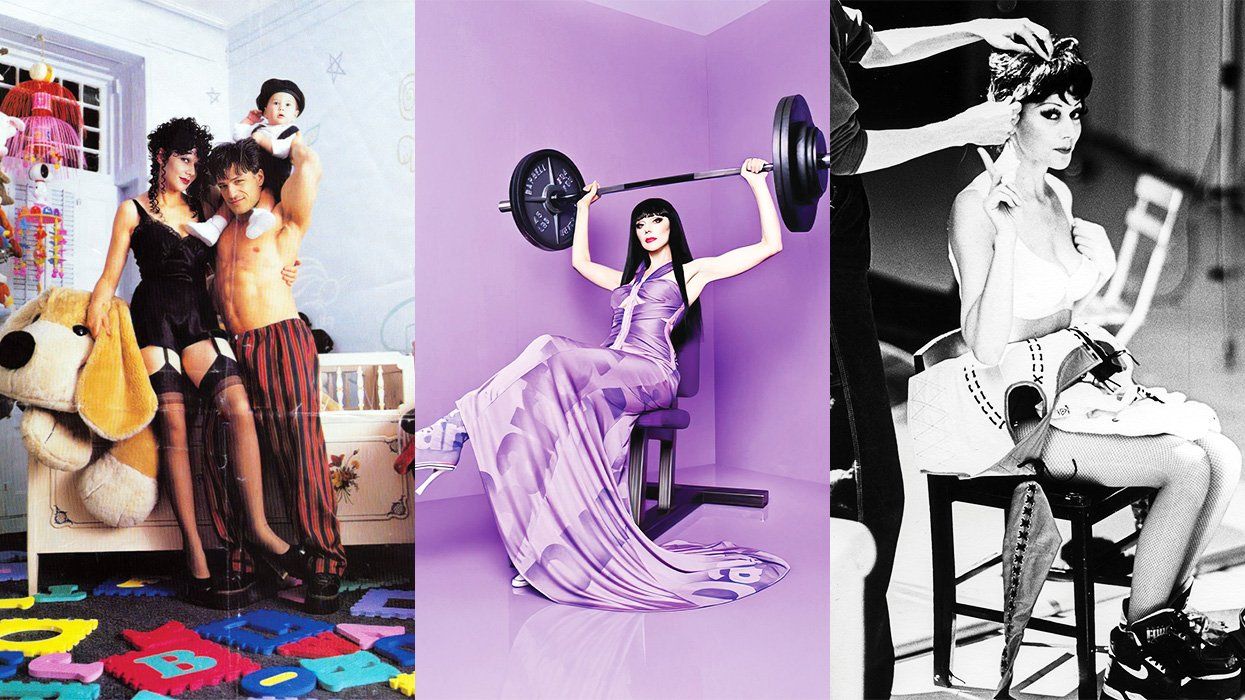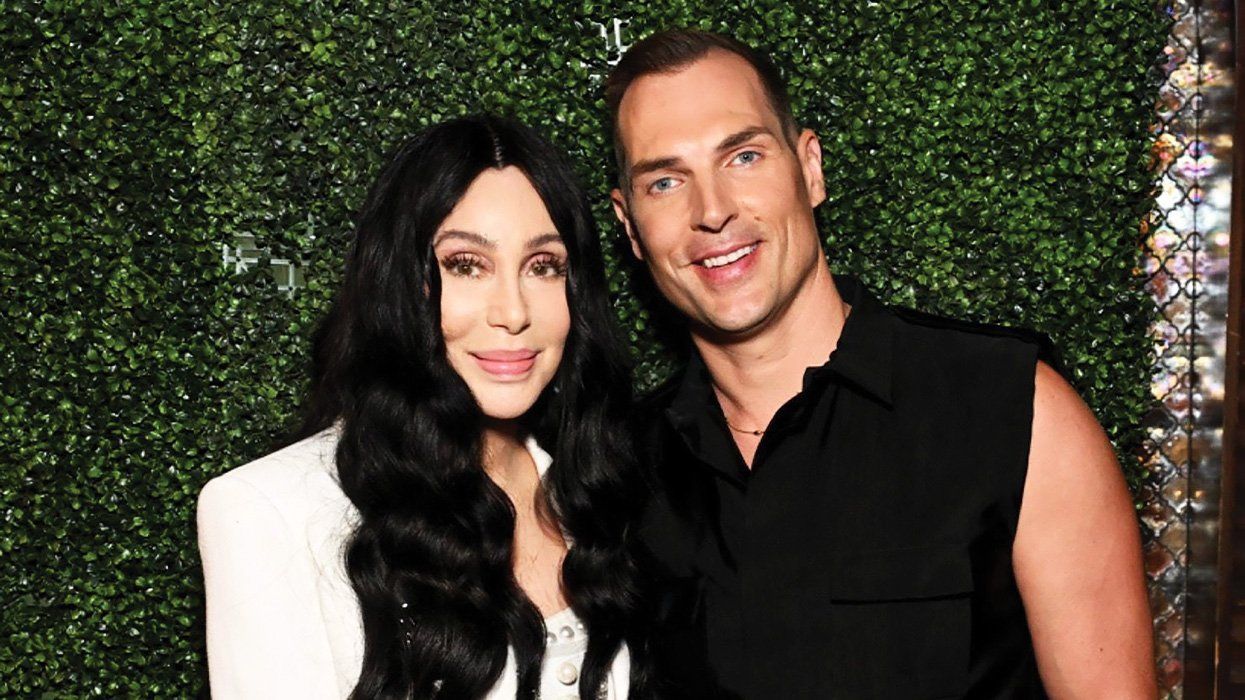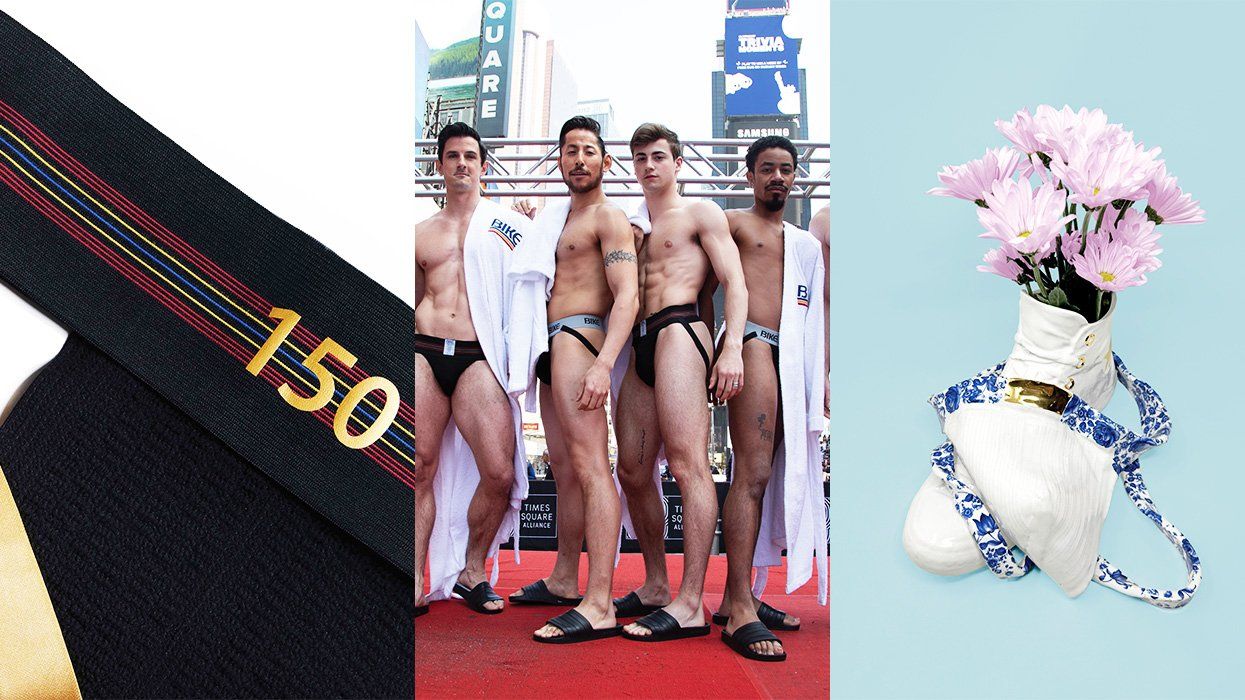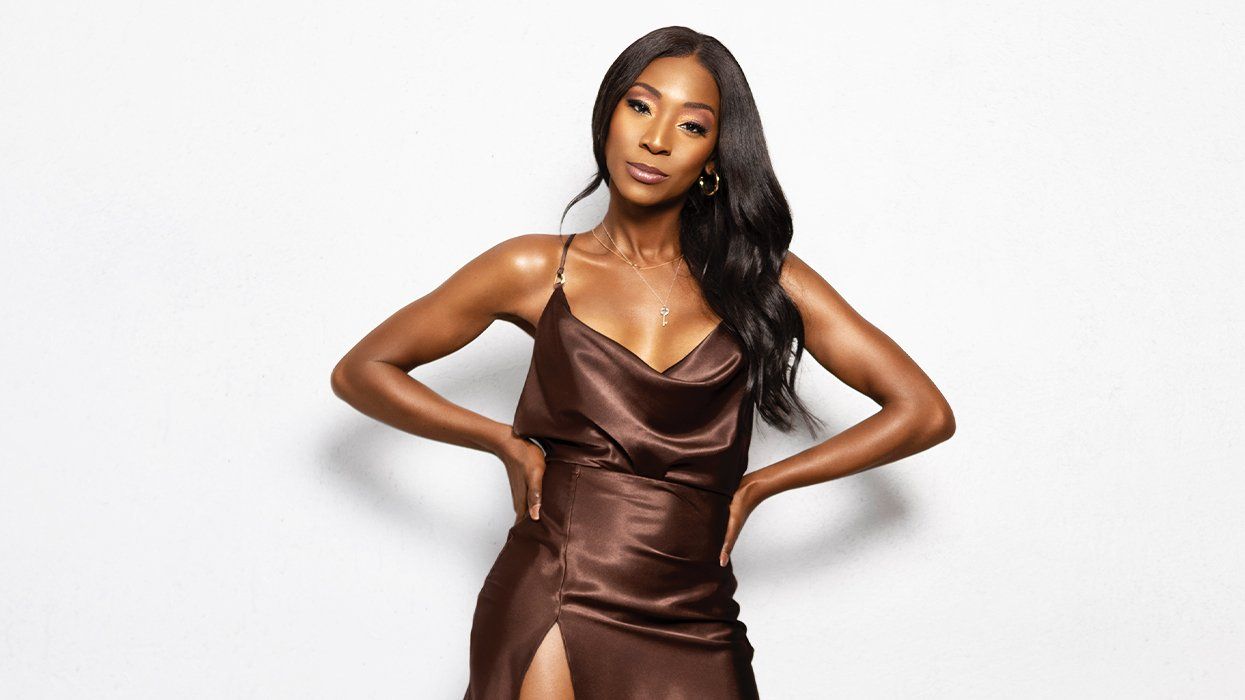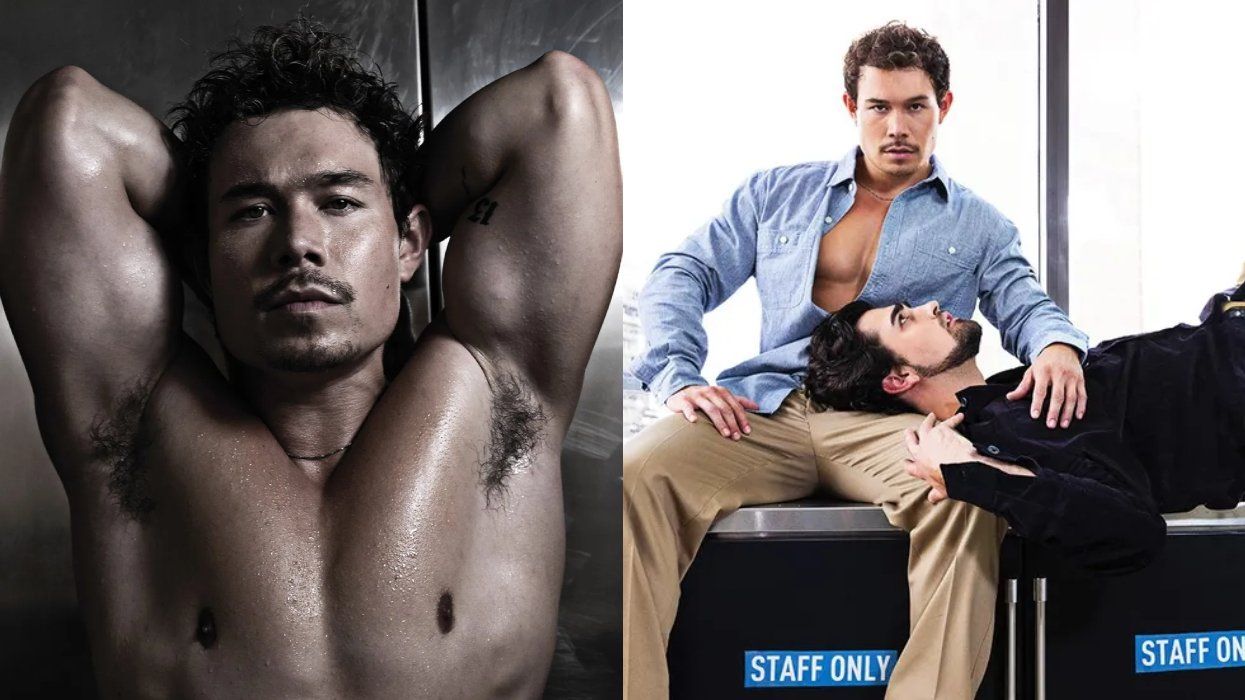In 1985, Madonna hosted the 11th season premiere episode of Saturday Night Live. In one notable sketch, she portrayed a soap star who refuses to kiss actors she doesn't know out of fear of contracting HIV. Opposite her was Terry Sweeney -- SNL's first out gay male cast member. Sweeney played a clearly queer actor who, to comic effect, tries to butch up his mannerisms in order to assuage the fears of the actress.
The sketch, "Pinklisting," was a direct critique of stigma in Hollywood, referencing McCarthyism in a preamble: "Hollywood is again gripped by paranoia, this time provoked by the tragic AIDS outbreak." Rock Hudson had died the previous month, a victim of the plague, and headlines obsessed over whether he may have passed on the virus to his Dynasty costar Linda Evans when they shared an on-screen kiss. Madonna's character is named "Melinda," a clear parallel.
"The homophobic paranoia and hysteria around this disease had straight folks wondering if it was even safe to have a gay waiter bring you your food or touch your plate," Sweeney tells Out of the period. With this "horror as a backdrop," Sweeney decided to come out to NBC; he had worked as a writer for the legendary sketch comedy series before being recruited as a regular cast member for the 1985-1986 season.
"I knew it could cost me my job and I would never have this chance again, but what was that in the face of all the agony that my fellow queer people were going through?" Sweeney says. "I thought it was an important time to be very public about coming out of the closet."
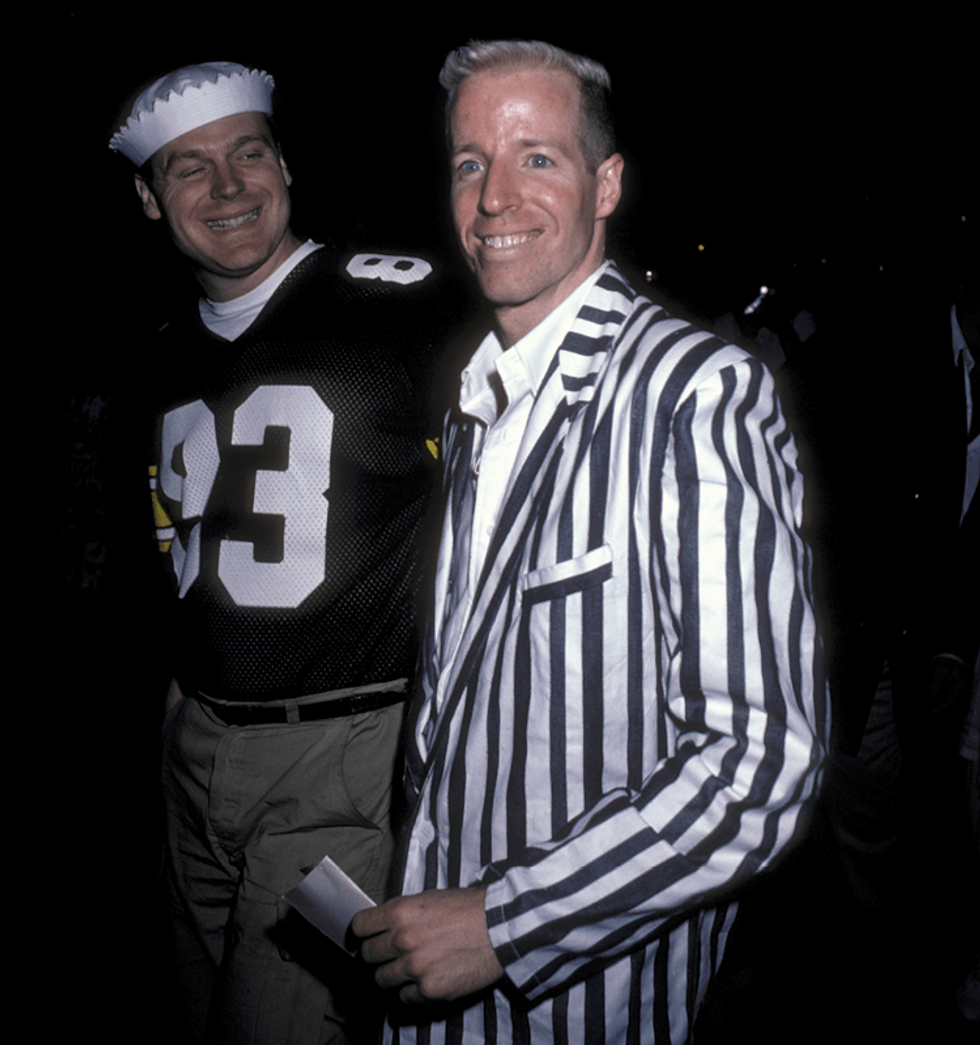
Sweeney feared he was in violation of NBC's morals clause at the time. But SNL creator Lorne Michaels and the network's then-president, Brandon Tartikoff, "stood by me. They deserve credit for that," he says. "Without them, I wouldn't have been the first openly out person on Saturday Night Live -- and network commercial-based television, I was later to find out."
While the tropes of a sketch like "Pinklisting" may not hold up for modern audiences -- Sweeney clutches his pearls at a Liza Minnelli gossip headline and shifts to a mincing persona when startled -- it's a remarkable display of visibility in an era gripped by pandemic-related fear and misinformation. Sweeney credits his now-husband, Lanier Laney, a writer at the show at the time, alongside writers like Al Franken, Jim Downey, and Carol Leifer -- who later came out as a lesbian -- for penning "gay-positive" content in a time of little LGBTQ+ representation.
While "Pinklisting" was explicit in its critique of homophobia, the queerness Sweeney brought to SNL was often more gender-bending. Prior to his casting, the entertainer had gained a following in New York for comedic drag art performances, which had attracted the eye of Michaels. Sweeney then brought drag to SNL. In the same Madonna episode, Sweeney portrayed an uncanny Nancy Reagan, nailing the adoring "look" the first lady often beamed at her husband, President Ronald Reagan (Randy Quaid). Further queering this episode, Madonna played Princess Diana in a skit.
Sweeney's Nancy character would become his most famous SNL impression, significant in a time when the first couple stayed silent during the AIDS epidemic. (It had actually been Franken's idea to have Sweeney play Nancy, first noticing a potential resemblance.) His other female impersonations included other over-the-top women celebrities like Joan Collins and Joan Rivers.
Sweeney's screen time made a world of difference to LGBTQ+ viewers. Jim Halterman, the West Coast bureau chief at TV Guide, recalls how significant it was to see Sweeney perform on network TV. "Before Terry Sweeney, I can't really think that they did a lot of gay content on this show," he says, noting how hilarious he was as Rivers. "It's such a good impersonation, which is what SNL is known for."
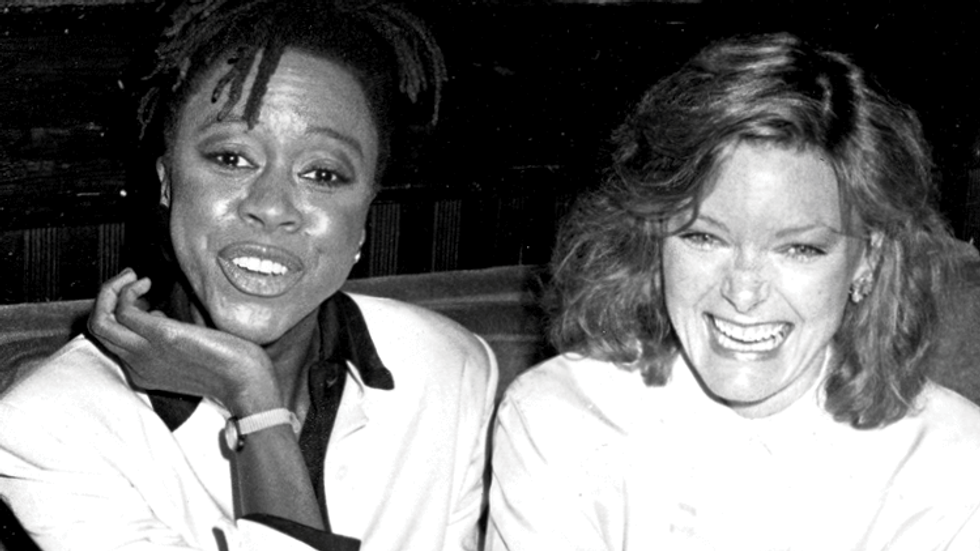
While some of the early humor may not hold up to the modern eye, "it was just nice to know that there was somebody who...was out during that time," Halterman attests. "Especially on SNL, you didn't see it that often. You may have had actors playing gay characters and different sketches of things. But it was revolutionary."
"We needed somebody in the room. And he was that person," Halterman adds.
And Sweeney was supported by LGBTQ+ love. "What I will remember most and will always hold dearest to my heart are the many sweet letters that I received from so many young LGBTQ+ people in places like Oklahoma, Kansas, Texas, and all over the country that said how much it meant to them to see someone funny and 'out and proud' on their televisions back home watching with their parents!" Sweeney says. "That is what really made it all worth it."
Sweeney only appeared on SNL for one season; he was cut along with most of the cast in 1986, a lineup that had included Quaid, Joan Cusack, Robert Downey Jr., and Danitra Vance, the first Black woman to be an SNL cast member. Vance was also a member of the LGBTQ+ community, although her lesbian identity would not be made public until her death in 1994. She was the second known lesbian SNL cast member, following Denny Dillon, from the show's sixth season, who did not come out until a 2020 Vulture interview. Following Sweeney's departure, it would take until 2012, when Kate McKinnon was hired, before another out gay cast member joined SNL.
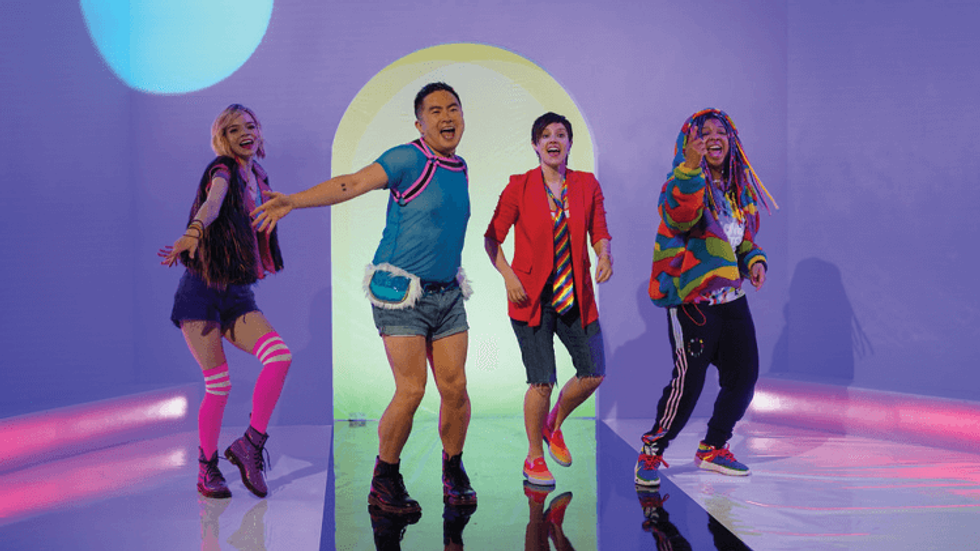
While out talent may not have been present on-screen, there were notable sketches over the years with LGBTQ+ themes, with mixed degrees of progressiveness. "The Ambiguously Gay Duo," created by Robert Smigel and J. J. Sedelmaier, spoofed the homoeroticism present in male superhero pairings like Batman and Robin while also taking aim at the oversexed stereotypes imposed on queer men. While one-note, the cartoon stands the test of time far greater than "It's Pat," an unfortunate recurring sketch where the joke relied on characters guessing the gender of an androgynous character played by Julia Sweeney (no relation to Terry).
With McKinnon, Bowen Yang, and Punkie Johnson as cast members in SNL's current season, the show is as queer as it's ever been. While current "Weekend Update" cohosts Michael Che and Colin Jost rankle occasionally with questionable jokes -- Jost blamed the election of Donald Trump on the rise of trans and nonbinary visibility in dating apps, for example -- funny LGBTQ+ sketches have abounded in recent years: Vanessa Bayer's lesbian awakening over Totino's (courtesy of Kristen Stewart), a spoof of It Gets Better with Dan Levy, a Pride music video with Lil Nas X, a skewering of tropes in lesbian period dramas.
Significantly, McKinnon is a bona fide star whose impressions of figures from Hillary Clinton to Jeff Sessions have moved the needle in the political world. In a recent Weekend News segment that bears some DNA with Sweeney's on-air activism, McKinnon ripped into Florida's "Don't Say Gay" bill.
These LGBTQ+ artists now benefit from a world that Sweeney helped create. While he did eventually continue to work in Tinseltown, it was mainly in writing; he worked on several projects with Laney, including co-writing the 1989 film Shag. He continues to make art in a practice with his husband and even acted in Ryan Murphy's The Assassination of Gianni Versace: American Crime Story as David Gallo in 2018.
In the present day, Sweeney is impressed by the progress SNL has made and its ongoing relevance as a forum for cultural change. "I am a big fan of Kate McKinnon and Bowen Yang and think the current writing and performances of all the cast is some of the best that SNL has ever done --which is a testament also to Lorne as an amazing producer with long-term staying power," he concludes. "In a world of seemingly ever more authoritative oppression globally, SNL still serves as a beacon of a particular U.S.-Canadian blend of humorous liberation and absurdity. And I was lucky and grateful to be a part of it."
This article is part of Out's March/April 2022 issue, appearing on newsstands April 5. Support queer media and subscribe -- or download the issue through Amazon, Kindle, Nook, or Apple News.




